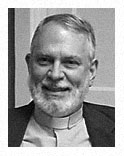Science without controls is not science
by Uri Brito
James Jordan makes some interesting remarks concerning scientific methods and the questions posed by science. [1] According to Jordan, modern scientific assumptions about the present betray the past and an accurate approach to the future. Science assumes that what we have today (referring to scientific discoveries) is exactly as it was in the past. However, scientific questions posed today are vastly different than the ones posed one hundred years ago. What Jordan is questioning with this reasoning is that science cannot be certain of its claims in the present, hence it must be seen with skepticism and understood for its limitations. When scientists claim certainty in their methods, they are in essence claiming ignorance of the lessons of the past and the future. Jordan writes:
The point of all of this is that the past is not subject to the kinds of controls and observation that science requires. Interpreting the past involves guesswork to a far greater degree than observational science, and thus there is far more room for presuppositions and assumptions to play a role. [2]
Jordan argues that unbelievers invariably are prone to wander in their scientific endeavors. Hence, “unbelieving ‘science’ does not perceive the true nature of the universe.” [3] Their worldviews restrain them from seeing biblical truth exchanging it for a lie. Jordan concludes that “when Christians operate on the same premises as unbelievers, they will not perceive aright either.” [4] Is it any wonder that natural theologians have begun to deny the historicity of the Creation account?
Jordan makes one further assertion worthy of consideration. He argues that Matthew 13 provides an excellent example of the intention of the Biblical record. According to our Lord, the parables were meant to reveal truth to believers and to deceive unbelievers. Jordan draws a similar parallel to revelation in creation. “If creational revelation is truly revelation, then it partakes of this same parabolic nature.” [5] As the written word misleads the faithless, so does the natural Word. Any approach that seeks to dispel the account of the Scripture is prone to self-deception.
___________________________
[1] James B. Jordan, Chapter 6, Creation in Six Days: A Defense of the Traditional Reading of Genesis One
[2-4] Jordan, p. 126
[5] Jordan, p. 127


























